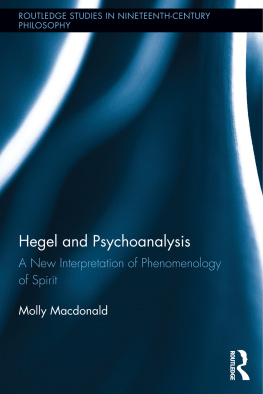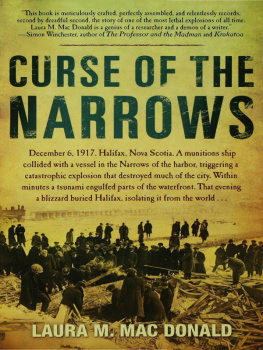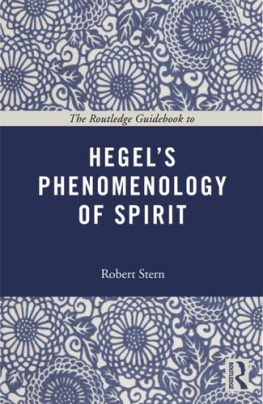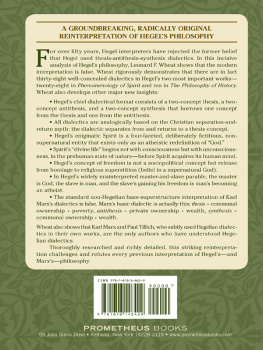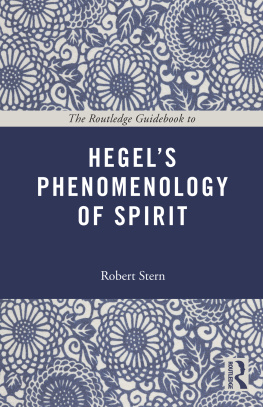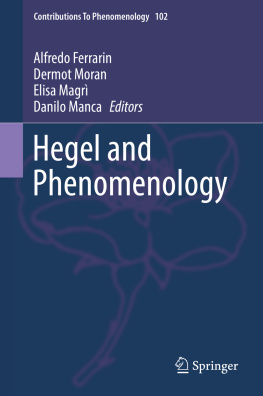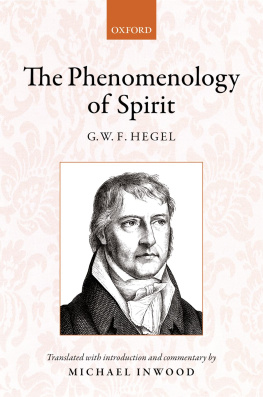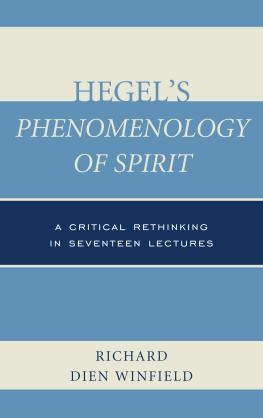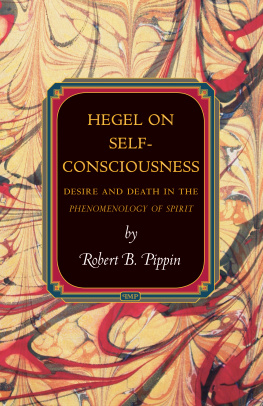Hegel and Psychoanalysis
Both Hegels philosophy and psychoanalytic theory have profoundly influenced contemporary thought, but they are traditionally seen to work in separate rather than intersecting universes. This book offers a new interpretation of Hegels Phenomenology of Spirit and brings it into conversation with the work of two of the best-known contemporary psychoanalysts, Christopher Bolas and Andr Green. Hegel and Psychoanalysis centres a consideration of the Phenomenology on the figure of the Unhappy Consciousness and the concept of Force, two areas that are often overlooked by studies which focus on the master/slave dialectic. This book offers reasons for why now, more than ever, we need to recognize how concepts of inter-subjectivity, Force, the third, and binding are essential to an understanding of our modern world. Such concepts can allow for an interrogation of what can be seen as the profoundly false and constructed senses of community and friendship created by social networking sites, and, further, an idea of a global community, which thrives at the expense of authentic intersubjective relations.
Molly Macdonald is Lecturer in Literary Theory at Queen Mary, University of London, United Kingdom.
Routledge Studies in Nineteenth-Century Philosophy
1 The Scotch Metaphysics
A Century of Enlightenment
George E. Davie
2 Kierkegaards Upbuilding Discourses
Philosophy, Literature, and Theology
George Pattison
3 Dialectics, Politics, and the Contemporary Value of Hegels Practical Philosophy
Andrew Buchwalter
4 Hegel and Psychoanalysis
A New Interpretation of Phenomenology of Spirit
Molly Macdonald
Hegel and Psychoanalysis
A New Interpretation of Phenomenology of Spirit
Molly Macdonald
First published 2014
by Routledge
711 Third Avenue, New York, NY 10017
Simultaneously published in the UK
by Routledge
2 Park Square, Milton Park, Abingdon, Oxon OX14 4RN
Routledge is an imprint of the Taylor & Francis Group, an informa business
2014 Taylor & Francis
The right of Molly Macdonald to be identified as author of this work has been asserted by him/her in accordance with sections 77 and 78 of the Copyright, Designs and Patents Act 1988.
All rights reserved. No part of this book may be reprinted or reproduced or utilized in any form or by any electronic, mechancial, or other means, now known or hereafter invented, including photocopying and recording, or in any information storage or retrieval system, without permission in writing from the publishers.
Trademark Notice: Product or corporate names may be trademarks or registered trademarks, and are used only for identification and explanation without intent to infringe.
Library of Congress Cataloging-in-Publication Data
Macdonald, Molly.
Hegel and psychoanalysis: a new interpretation of "Phenomenology of
spirit" / Molly Macdonald. 1 [edition].
pages cm. (Routledge studies in nineteenth-century philosophy; 4)
1. Hegel, Georg Wilhelm Friedrich, 1770-1831. Phnomenologie des
Geistes. 2. Psychoanalysis. I. Title.
B2929.M25 2013
193dc23
2013010212
ISBN: 978-0-415-85426-9 (hbk)
ISBN: 978-0-203-74445-1 (ebk)
Typeset in Sabon
by Apex CoVantage, LLC
I dedicate this book to my brothers, Ian and Lucas.
Contents
Christopher Bollas
- FA Free Association
- BC Being a Character
- FD Forces of Destiny
- SO The Shadow of the Object
- CU Cracking Up
- MT The Mystery of Things
- FM The Freudian Moment
Andr Green
- WN The Work of the Negative
- CE The Chains of Eros
- OPM On Private Madness
- TP Time in Psychoanalysis
- DP Diachrony in Psychoanalysis
- KI Key Ideas for a Contemporary Psychoanalysis: Misrecognition and Recognition of the Unconscious
- Squiggle Andr Green at the Squiggle Foundation
G.W.F. Hegel
- PS Phenomenology of Spirit
- JS The Jena System (180405)
- PP The Philosophical Propaedeutic
- PM Philosophy of Mind
- SL Science of Logic
I would like to thank Queen Mary, University of London, and the Overseas Research Scheme from Universities UK for awarding me the funding that allowed me to undertake the research for this book. I was fortunate enough to be guided from beginning to end by Paul Hamilton and to be the recipient of his wisdom, humour, and kindness. I am grateful to Jacqueline Rose for the invaluable support and encouragement she provided throughout, and particularly with the last two chapters. Thanks to Howard Caygill and Peter Dews for their insightful reading and commentary on an earlier draft of this book.
I am privileged to be part of the community in the School of English and Drama at Queen Mary and to have found people who have enriched and inspired me through this project and beyond; in particular, thanks to Rowan Boyson, Suzanne Hobson, and Anurag Jain.
I thank my mother, Caroline, my father, Torbert, and the rest of my family, especially my aunts Laurie Macdonald and Catharine R. Stimpson, for their unconditional love and care. The beautiful friendships of Lauren Antler, Laura Rosenfield, Daphne Walker, and Katherine Wolkoff have sustained me since our undergraduate days. Thanks to Bobby, Paula, and Kate for welcoming me to the Hershkowitz fold. I am grateful for Jesse Hershkowitz, who has brought love, levity, and joy, and for our Annie, who came into the world just as this book was going out into it.
Portions of the Introduction were published in an article for Philosophy Compass:
Hegel, Psychoanalysis and Intersubjectivity, Philosophy Compass, 6 (2011), 44858. doi: 10.1111/j.17479991.2011.00407.x.
HEGEL: PHENOMENOLOGY OF SPIRIT translated by Miller (1979) 3500w. By permission of Oxford University Press.
But perhaps the most substantial legacy of the formal operations synthesized by Hegel [...] consists in the foundation of the psychoanalytical subject, the subject of psychoanalysis, in the phenomenological subject, the subject implied by the Hegelian Phenomenology.
In 1955 Jean Hyppolite delivered a lecture to the French Society for Psychoanalysis titled Hegels Phenomenology and Psychoanalysis. Years later, Hyppolite described, to the editor of a collection in which his lecture was to be published, a discussion he had with Jacques Lacan directly following the lecture. The exchange was transcribed into a footnote included at the end of Hyppolites article. Hyppolite recounts that Lacan asked him what he meant by his use of the we, not only as an encounter of two consciousnesses, but as making the encounter possible. Hyppolite responded by asking Lacan what psychoanalysis in its practice may contribute to the third term which appears in the interaction of two consciousnesses. The discussion continued:
The question was raised again and again concerning the duality of consciousness and the significance that this going beyond could have both on the positive level where the field of consciousness appears as a kind of impersonal multiplicity, and on the ontological level where original speech, a primordial logos might be revealed. The problematical nature of this revelation, both in Freuds psychoanalysis and Hegels phenomenology, is at the centre of the issue. Naturally the question of the philosopher or of the analyst being beyond such discussion was inevitably raised.

